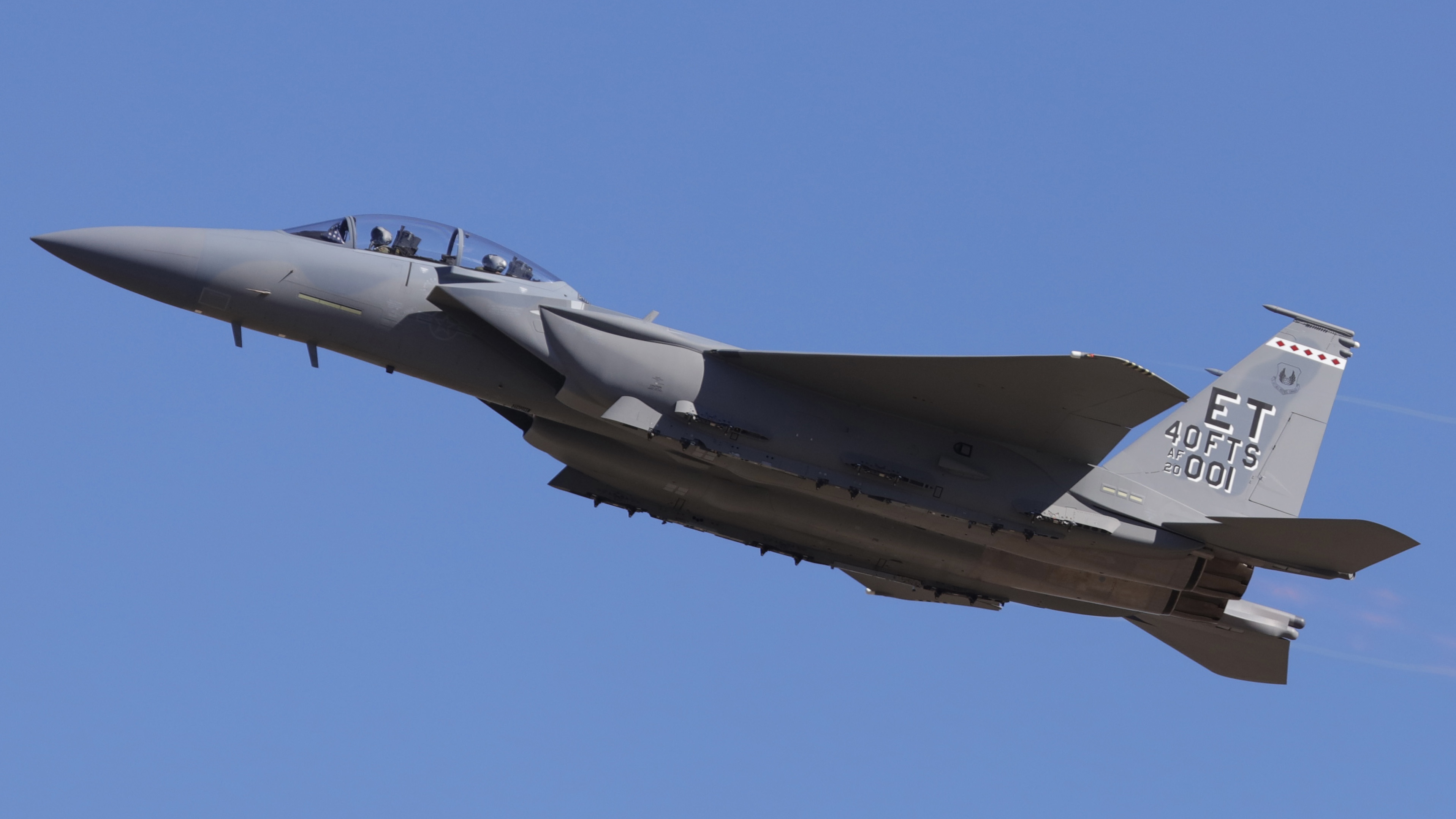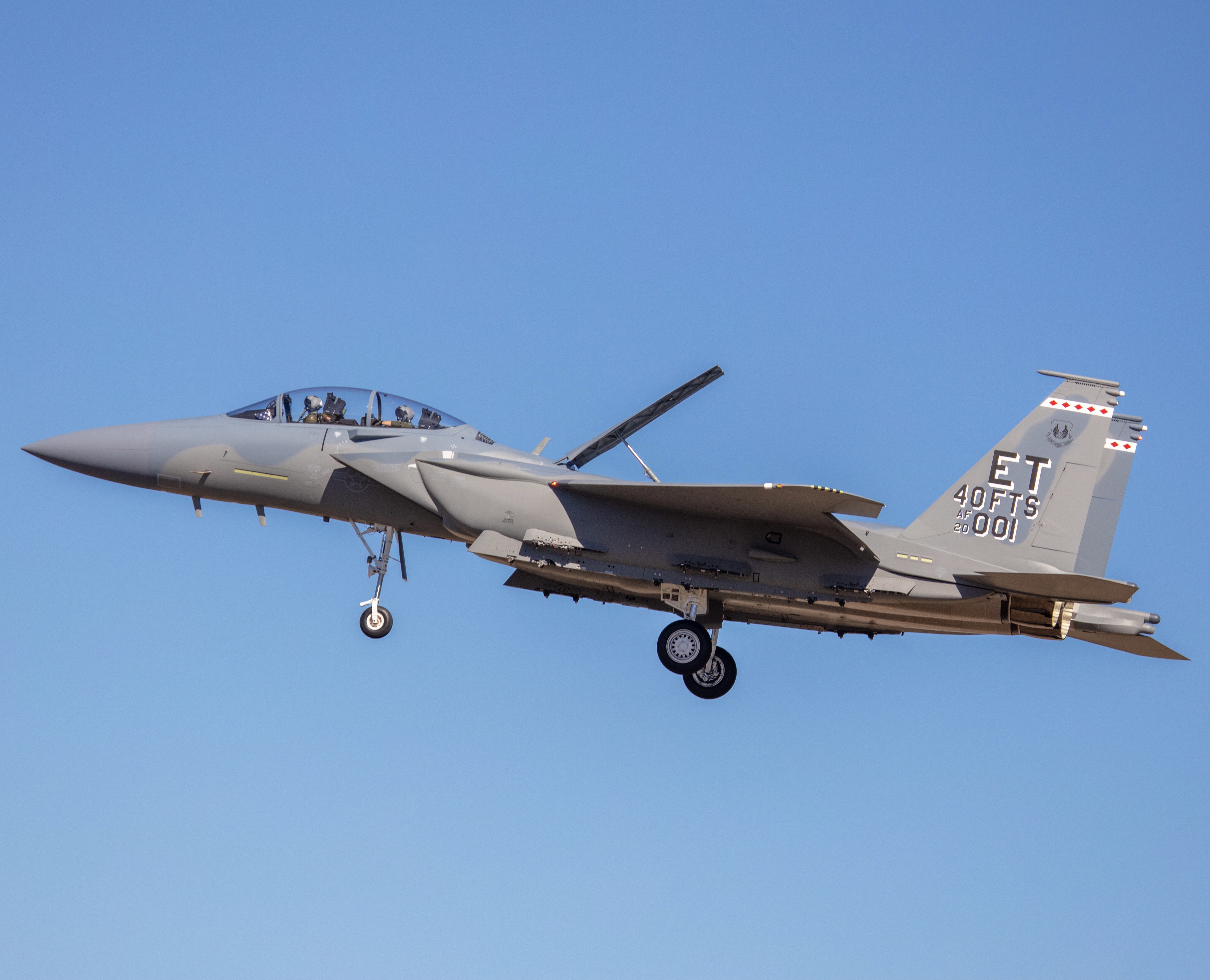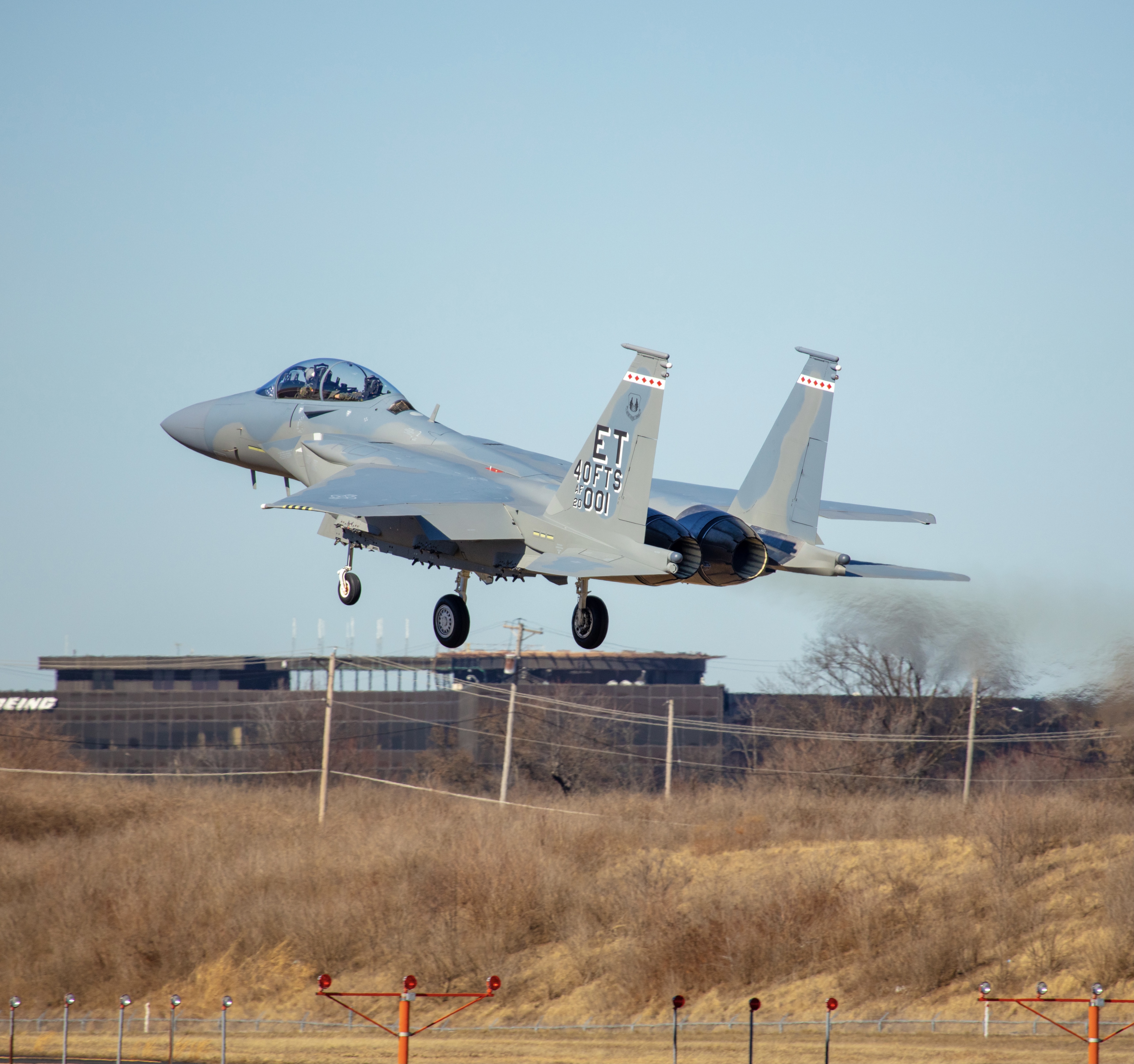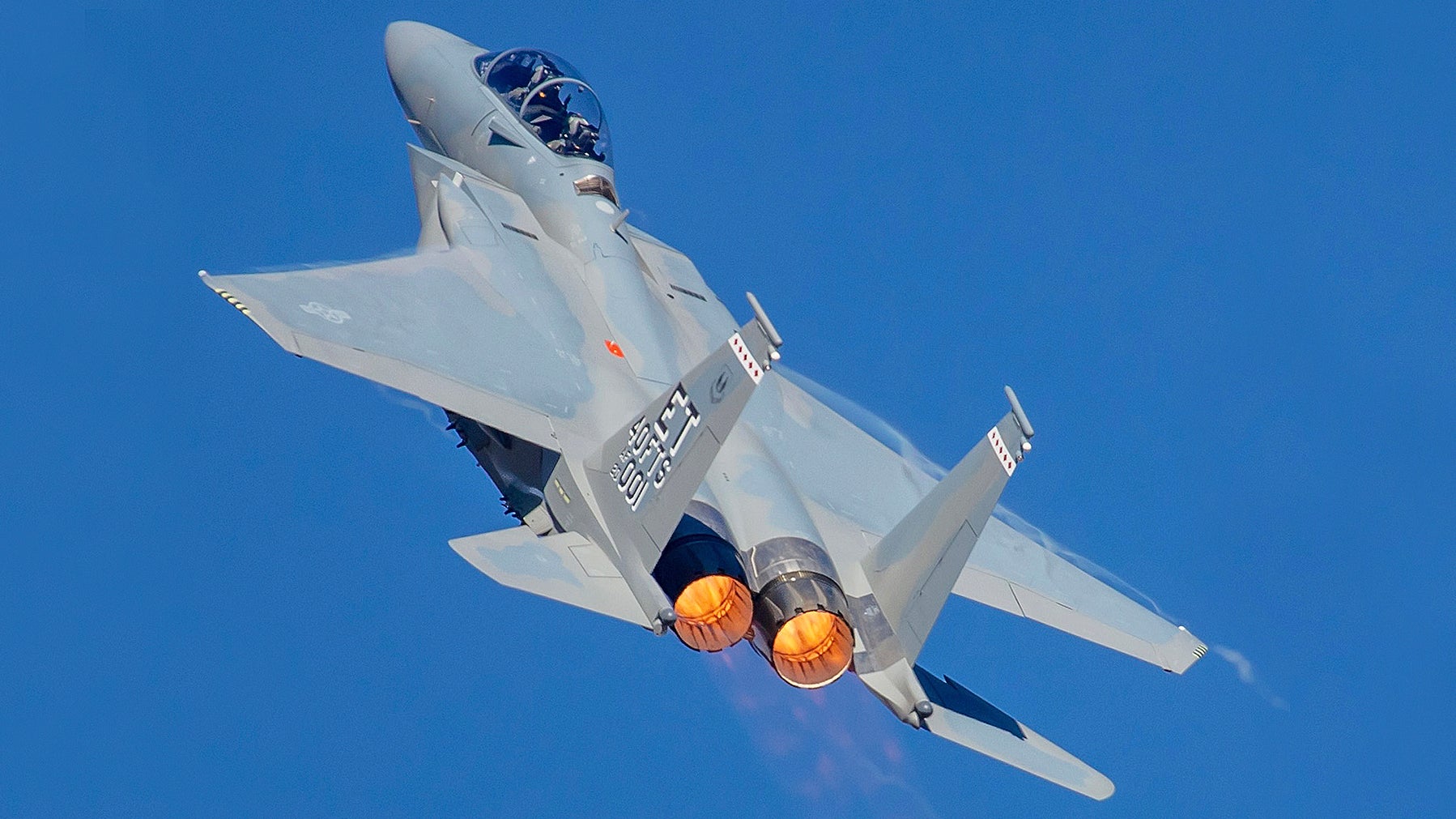The U.S. Air Force’s latest and greatest Eagle, the new F-15EX, now looks a lot more like the powerful war machine that it’s promised to be. After its maiden flight on February 2, which you can read all about here, the first of these aircraft returned to the air today in St. Louis, Missouri, with a newly applied, F-15C/D-style service color scheme. The markings include the tail codes of Eglin Air Force Base in Florida and its resident 40th Flight Test Squadron, which will be charged with proving out the jet in the months to come.
The superb photos of this jet, including the one seen at the top of this story, were supplied to The War Zone by Alex Farwell of Viking Aero Images. They include shots of the F-15EX with its new look conducting a “Viking takeoff,” as well as the recovery at the end of this latest test flight mission. Reportedly, this was the aircraft’s first flight in the hands of an Air Force test pilot, rather than one from Boeing.

The War Zone was first to unveil the F-15X initiative and describe its implications back in July of 2018 and the Air Force is now getting closer to taking delivery of its first examples. Eglin Air Force Base is scheduled to receive the first two of these new Eagles in the second quarter of Fiscal Year 2021, which began on January 1 this year. The other six jets from the first batch already on order are expected to be delivered to the Air Force in Fiscal Year 2023, but this could potentially come to pass significantly sooner.
The first F-15EX aircraft is serial number 20-0001, which we saw for the first time last summer when the Air Force announced that Boeing had won a contract worth nearly $23 billion to work on the program. That effort is intended to fulfill an urgent requirement for new-build fighters, primarily to replace the Air Force’s aging F-15C/D fleet.
As well as orders for the first aircraft, the Air Force has awarded another contract to General Electric for F110-GE-129 engines to power at least some of the initial batch of F-15EXs. Meanwhile, Pratt & Whitney is also expected to submit its F100-PW-229 engine as an alternative under a planned open competition. The issues around the selection of the F-15EX’s engines are something you can read more about in this recent War Zone piece.

“The F-15EX is the most affordable and immediate way to refresh the capacity and update the capabilities provided by our aging F-15C/D fleets,” General Mike Holmes, head of Air Combat Command, said last summer. “The F-15EX is ready to fight as soon as it comes off the line.”
Beyond that, the F-15EX will begin equipping the Air National Guard’s formal F-15C/D training unit, the 173rd Fighter Wing based at Kingsley Field in Klamath Falls, Oregon. The first of the frontline recipients will then be the 123rd Fighter Squadron, the “Redhawks,” of the 142nd Fighter Wing, based in Portland, Oregon. This is scheduled to occur in 2023, under plans that you can read more about here. Beyond that, Massachusetts, Louisiana, and California-based F-15C/D units could all potentially transition to the new airframe as well, but the F-35A remains another option for these units.

The Air Force has requested funds for an additional 12 aircraft in the 2021 Fiscal Year and builds toward its aim of purchasing a total of 76 F-15EXs over the five-year Future Years Defense Program. Ultimately, the service hopes to buy at least 144 of the jets to replace its older F-15C/Ds that are rapidly running out of service life. The possibility of replacing the F-15E with the F-15EX has also been touted, at least unofficially, while ongoing assessment into the flying future force mix for tactical fighters could provide yet more opportunities for the Boeing fighter.
Outside of the United States, there is also the potential for export sales. Boeing is pitching the jet to India and Israel although, for the time being, the Israeli Air Force has opted for additional F-35Is. In recent weeks, Indonesia has also been suggested as a possible, albeit less likely candidate, for the F-15EX.
Whatever happens, the F-15EX is now in the ascendancy and it won’t be long until Air Force pilots are flying the new jet on a regular basis.
Contact the author: thomas@thedrive.com
